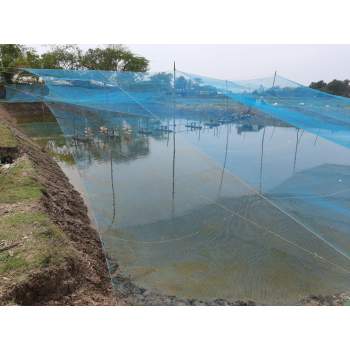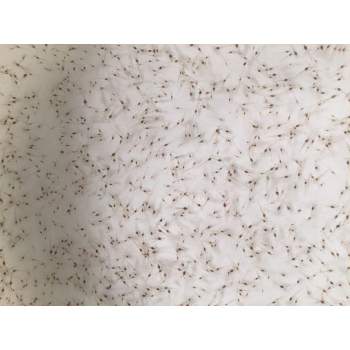
Biosecurity in shrimp farming can be defined as the preventive measures for the exclusion of specific pathogens from cultured shrimps. Nowadays, Disease outbreaks in shrimp culture is considered as the highest level of threat. Based on the previous history of the last few years since the development of shrimp culture, mass disease outbreak has caused havoc throughout the shrimp producing regions. Apart from ensuring Pathogen-free status as SPF seeds, farmers should give equal attention to horizontal transmission of diseases from pond to pond, farm to farm, and village to village.
This is done by following precautionary measures, through proper coordination among farmer’s associations regarding judicious use of water resources, seed stocking density, periodic treatment and disposal of sludge, drainage after harvest, closure, and disposal of crops due to viral diseases, etc.
The following biosecurity measures to be followed in shrimp farming:

Lithopenaeus vannamei is highly susceptible to a number of viral pathogens. Certain viral pathogens of shrimp, notably White Spot Syndrome Virus (WSSV) and Infectious Hypodermal and Hematopoietic Necrosis Virus (IHHNV), are transmitted from broodstock to postlarvae that are then stocked with the infection, increasing the likelihood of a serious profit-limiting disease outbreak. In order to eliminate the presence, the virus in the seed, Specific Pathogen Free (SPF) stock has been developed by producing a number of generations in highly biosecure facility with continued surveillance of pathogen presence.
SPF status refers to the absence of specific pathogens from a population of shrimp. SPF shrimp are selected through a multigenerational process that includes strict quarantine and endless sampling – typically polymerase chain reaction and histopathology – for the presence of the pathogens of concern. The primary advantage to using SPF animals relates to the ability to control disease. One can expect to see other advantages over years to come, including real disease resistance, enhanced growth and stress resistance.
The specific pathogen free (SPF) Litopenaeus Vannamei has capacity to produce quality seeds with faster growth and higher survival rates for commercial farm. The status of SPF signify that the shrimps have passed through a rigorous quarantine and disease screening process that determined them to be free from specified pathogens of concern to culturists. They are repeatedly bred under controlled conditions to maintain their freedom from specific pathogens and the SPF designation itself is tested on a regular basis. Offspring of SPF shrimp are not considered SPF unless they are produced and maintained at an SPF facility.
Many farmers have been led to believe that SPF animals can solve all of their problems. For farmers thoroughly disenchanted with the problems associated with trying to rear non-SPF P. vannamei, the success they enjoy by the shift to SPF P. vannamei has been nothing short of miraculous. However, this does not mean they can become complacent and ignore basic biosecurity rules.